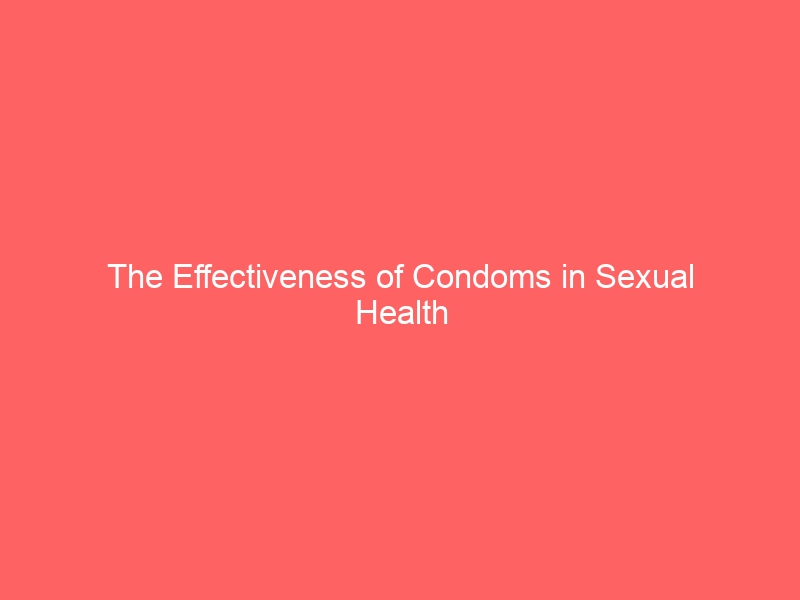When it comes to sexual health, you might wonder about the effectiveness of condoms and how they fit into your overall safety plan. Many people have misconceptions about their reliability, so it’s important to clarify what you really need to know. You’ll discover proper usage techniques that can enhance their effectiveness and answer the question: are condoms reversible? Additionally, you’ll learn how condoms play a crucial role in preventing STIs compared to other contraceptive methods. By the end of this article, you’ll feel more informed and empowered to make safe choices.
Understanding Condom Effectiveness
Understanding condom effectiveness is crucial for ensuring your sexual health and preventing unwanted pregnancies and STIs. When used correctly, condoms can reduce the risk of these issues significantly. It’s important to choose the right type of condom for your needs, as not all condoms are created equal. You’ve got to ensure that the condoms are stored properly, as heat and moisture can degrade them. Checking the expiration date is essential; using expired condoms increases the risk of breakage. Proper application and removal are key to maximizing their effectiveness. Remember, condoms should be used every time you have sex for optimal protection. It’s also worth noting that dual protection, using condoms alongside another contraceptive method, can enhance safety. With that in mind, let’s explore some common misconceptions about condoms.
Common Misconceptions About Condoms
Many people think condoms are only effective for preventing pregnancy, but they’re also crucial for reducing the risk of sexually transmitted infections. You might believe that all condoms provide the same level of protection, but that’s not true. Some people assume that using two condoms offers extra safety, yet it can actually increase the chance of breakage. If you think that condoms aren’t necessary for oral sex, you’re mistaken; they play an important role here too. You might also believe that certain birth control methods eliminate the need for condoms, but that’s not the case. Many think that condoms can be reused, which is unsafe and ineffective. You may have heard that individuals with HIV can’t transmit the virus if they’re on medication, but condoms still offer essential protection. Some people worry that condoms decrease pleasure, but there are many varieties designed to enhance sensation. If you’re not using condoms, you’re missing an important aspect of responsible sexual health.
Proper Condom Usage Techniques
Proper condom usage techniques can significantly enhance your protection against sexually transmitted infections and unintended pregnancies. First, you should always check the expiration date before using a condom. Make sure to open the package carefully, avoiding sharp objects that could damage the condom. When putting it on, pinch the tip to leave room for semen and roll it down to the base of the penis. You’ve got to use water-based or silicone-based lubricants to prevent breakage, but avoid oil-based ones as they can weaken the latex. After ejaculation, hold the base of the condom while withdrawing to prevent spillage. Dispose of the condom properly in the trash, not in the toilet. Never reuse a condom; always use a new one for each sexual encounter. Lastly, familiarize yourself with the instructions on the packaging for the best results.
The Role of Condoms in STI Prevention
Condoms play a crucial role in protecting you from sexually transmitted infections. They create a barrier that prevents the exchange of bodily fluids during sexual activity. By using condoms consistently and correctly, you significantly reduce your risk of infections like HIV, gonorrhea, and chlamydia. It’s important to remember that not all condoms are equally effective; using latex or polyurethane is recommended for better protection. Additionally, combining condom use with other preventive measures can enhance your safety further. When it comes to sexual health, knowledge about proper usage is key to maximizing effectiveness. You should also be aware that some individuals may have allergies to latex, which can affect their choice of protection. Overall, condoms are a reliable option for those looking to maintain their sexual health. Next, let’s explore how condoms compare with other contraceptive methods in terms of effectiveness and protection against STIs.
Comparative Analysis with Other Contraceptive Methods
You might find that condoms offer unique benefits compared to other contraceptive methods. Unlike hormonal options, they don’t alter your body’s natural hormone levels. They’re easy to obtain and require no prescription, making them accessible for many. Condoms also offer dual protection by preventing STIs while acting as a contraceptive. In contrast, methods like the pill or IUD don’t provide any STI protection. You won’t have to worry about missed doses or scheduling appointments with condoms. They’re also cost-effective, especially with the availability of free options in many places. Some people appreciate the immediate nature of condoms, as there’s no waiting period required. Ultimately, condoms can be a versatile choice for those seeking both pregnancy prevention and STI protection.
For those interested in enhancing their understanding of sexual health, I highly recommend visiting the webpage that explores the safety of using Aloe Vera with condoms. This insightful article can provide valuable information on whether this popular natural product is compatible with condom use, which is essential for maintaining effective protection. You can read more about this topic here.
